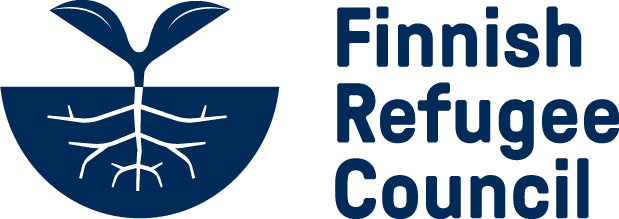In January 2021, the Finish Refugee Council launched a one-year project on scaling up financial literacy training for refugees and host communities in Adjumani district in North Uganda. Adjumani’s refugee population is the second largest in Uganda, covering nearly 15 percent of the 1.45 million refugees living in the country.
The World Food Program (WFP) is gradually moving away from food distribution to Cash-based transfers (CBT). These Cash-based transfers support the independence and self-sufficiency of refugees; people can use or invest the cash-grants in the way they see fit, and thus impact their own lives.
Refugees from challenging backgrounds often lack the basic skills in cash management, savings and spending decisions needed to manage their personal finances. Illiteracy and language barriers are the major obstacles, affecting large sections of the refugee population. Lack of reading and numeracy skills makes it difficult to manage finances and plan for the future. It also increases the risk of possible exploitation. The majority of Ugandan refugees are from South Sudan, where the adult literacy rate is the third lowest in the world. An estimated 70 percent of South Sudanese refugees (and 80% of women) are illiterate.
“Financial Literacy trainings enables the funds received to be used effectively, listening different family members and taking their needs into account. High illiteracy exposes the received cash transfers to unplanned use and can increase tensions within the family”, comments Outi Perähuhta, Adviser at the Finnish Refugee Council’s International Program.
Providing tools for the future
The project, funded by the World Food Program, is nationwide and covers all refugee settlements across Uganda. An estimated 141,010 households, of which 17,650 located in the Adjumani district, will benefit from Financial Literacy trainings. The trainings are designed to be accessible especially for women. Trainings are made accessible also for People with Disabilities, such as visual and hearing impairments.
“Financial Literacy training has helped me learn to plan and budget as a family. Through saving goals, I learned to save money for future needs, and not spend it all at once. I want to save money for my children’s education, so they can have better opportunities in life”, commented Mukeshimana Nyirakayonde, a mother of four who attended the Finnish Refugee Council’s Financial Literacy training in Nakivale, Uganda. Mukeshimana fled to Uganda from Democratic Republic of Congo in 2013 as a result of violent attacks by the rebels against the government.
Finnish Refugee Council has operated in Uganda since 1997 – Uganda is our longest-running country of operation. Our current projects in Uganda employ a total of 107 people. Finnish Refugee Council is the only international organization in Uganda specialized on focusing on adult education in refugees settings.
Read more about the work of FRC in Uganda on our website.


